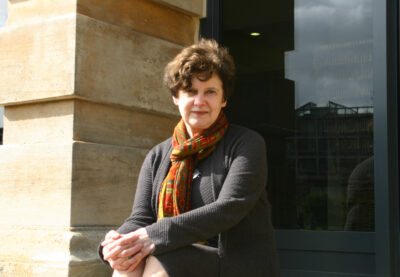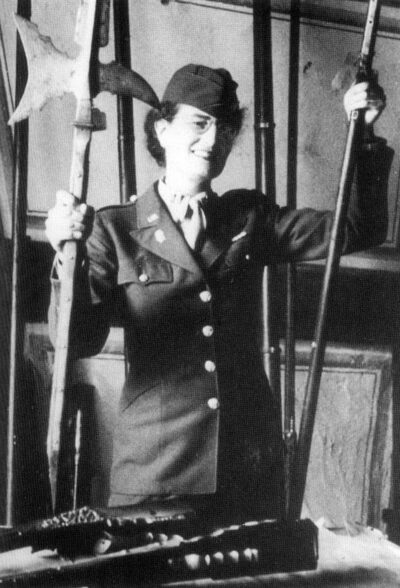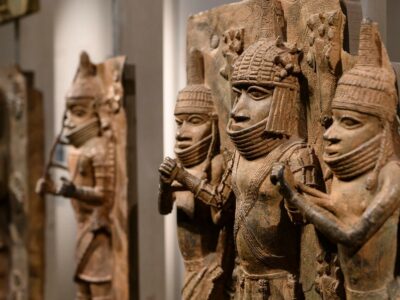Over 70 Somervillians and their guests attended the sold-out talk by former principal Alice Prochaska at the Oxford & Cambridge Club on 4th February where she delivered a fascinating talk on Libraries and Warfare: Loss, Loot and Restitution.

Former Principal Alice Prochaska
Alice identified the Second World War as a turning point in European and American attitudes to the importance of cultural heritage for communities and nations. Both the Axis powers had used history and culture as part of their political and military strategies. Italy had presented its colonial occupation of North Africa as a classical world revival; Germany had sought archives from Paris as a part of its self-claimed patrimony and destroyed documents and archives belonging to conquered nations with the aim of erasing these communities from history. Both powers had looted artworks, books and documents. In 1943 as the liberation of Europe drew closer, Eisenhower set up the Monuments, Fine Arts and Archives Association (MFAA), more familiar to many as the ‘Monuments Men’ which worked with the military and civil authorities to protect, recover and restore art works and archives to their original owners. This important project provides a positive benchmark in the history of loss and looting.

Monuments Woman, Somervillian Edith Standen, Wiesbaden, 1946
It was heartening (though not surprising!) to learn that a Somervillian was given the Bronze Star for her role at the heart of this project. Edith Standen graduated with a degree in English in 1927 and moved to the US where she worked as an art curator for different private collections. In 1943 she joined the US Army and in 1945 became a member of the MFAA travelling to Germany where she was the only woman to sign the Wiesbaden Manifesto denouncing the US decision to transfer some of the recovered artworks to Washington DC for safe-keeping.
Sadly, the work of the Monuments Men is still on-going (they have an excellent website detailing their WW2 work and current activities) and more recent conflicts have led to further loss and looting. Alice gave the example of Mosul in Iraq where ISIS destroyed the library in 2015 with the loss of many unique manuscripts. In Mali, priceless collections of medieval Islamic manuscripts have been rescued by the bravery of their curators and others smuggling them from the Jihadist forces in Timbuktu to the relative safety of Bamako. The destruction of the Bosnian National Library and its unique collections in 1992 was a deliberate act of war by the Serbian army, looking to deny the nationhood of their neighbours.

The Benin Bronzes
Alice also discussed some of the on-going controversies about restitution. We are all aware of some of these disputes, that around the Elgin marbles for example. Other examples include the Benin Bronzes originally created in what is now Nigeria, examples of which are held in several Western collections. Some of the bronzes have been returned and the Oba of Benin has committed to a new museum where they will be preserved and will continue to be available to the public. Discussions around restitution consider the provenance of items, some were looted but others were bought or given, the conditions that they would be returned to in terms of accessibility and conservation, and how technology can help to record, preserve and share their contents through digitisation. There is no one answer that is appropriate for each case but it is important to start and to continue these conversations so the best solutions can be found.
Dr Prochaska also mentioned the work of Book Aid International (a charity of which she is the Chair of the Trustees) which supports libraries around the world and works to restore book collections lost through war or natural disaster (https://bookaid.org) and of Charmagzh, a charity founded by Somerville Sanctuary Scholar Freshta Karim which provides mobile libraries for children in Afghanistan (https://charmaghz.org)